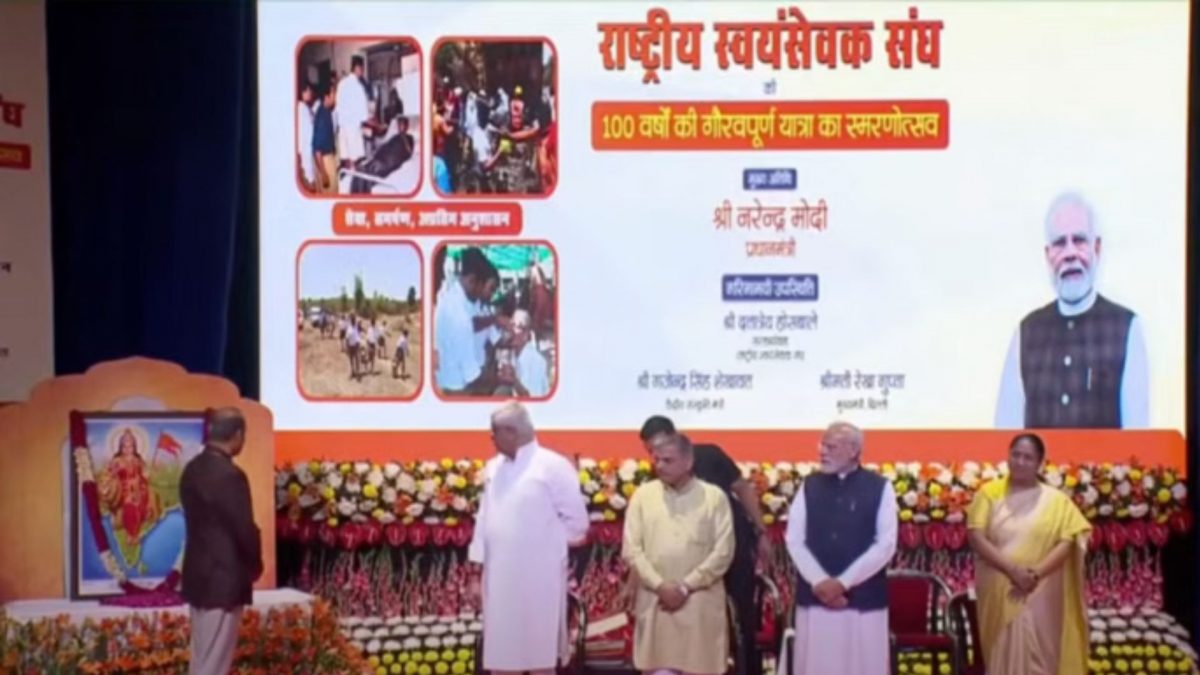Prime Minister Narendra Modi, addressing the Rashtriya Swayamsevak Sangh (RSS) centenary celebrations in New Delhi on Wednesday, warned that India is currently confronting new threats, including deliberate efforts to “break the country’s unity and change demography.”
Speaking as the Chief Guest at the Dr. Ambedkar International Centre, he declared that national unity must be the country’s biggest priority. The PM elaborated on the nature of the danger, stating, “There are attempts to destroy our unity or integrity and security- it is internal as well as external challenges that we are facing.”
“Demographical changes are a big challenge for us and we have to be very careful of this challenge and fight it. It is important for family unit to come to place and the elders of the family. Keep the entire flock together," the PM added.
To mark the occasion, the Prime Minister released a special commemorative postage stamp and coin recognising the RSS’s contributions to the nation, after which he will address the attendees.
PM Modi said it was not a coincidence that the Rashtriya Swayamsevak Sangh (RSS) was founded 100 years ago on Vijayadashami, a festival that stands for the victory of good over evil, truth over lies, and light over darkness.
“… Tomorrow is Vijayadashmi, a festival which symbolises the victory of good over evil, victory of justice over injustice, victory of truth over falsehoods, and victory of light over darkness… The establishment of RSS as an organisation on this great day 100 years ago, was no coincidence," he said.
Tracing its roots
Established in 1925 in Nagpur, Maharashtra, by Dr. Keshav Baliram Hedgewar, the RSS began as a volunteer group focused on building cultural unity, discipline, community service, and civic responsibility.
The RSS operates over 60,000 shakhas—regular gatherings of volunteers—across the country.
Beyond this, millions of volunteers are actively involved in a wide range of RSS-inspired organisations that span diverse fields, including tribal development, science and technology, consumer rights, and labor unions. Around 30 of these affiliated groups have a nationwide presence, engaging both at the grassroots level and with influential figures across various sectors.
)